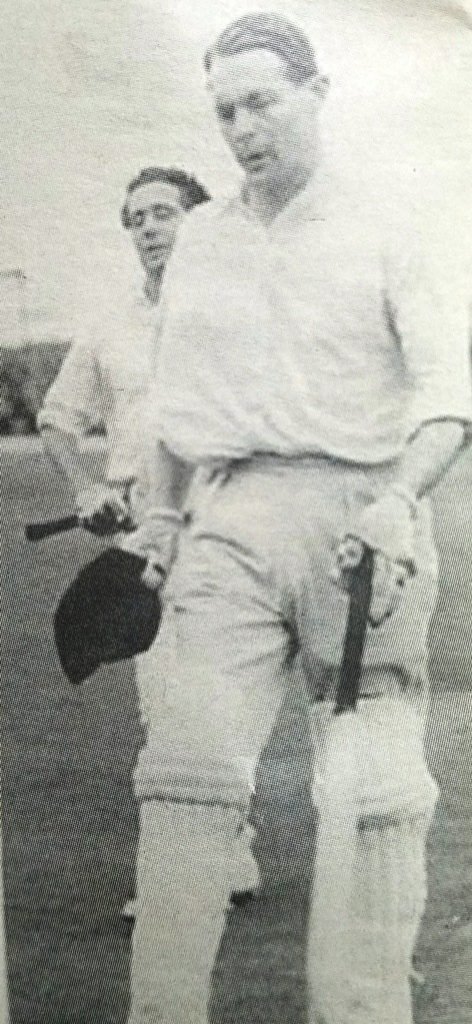Former England cricket captain David Sheppard died following a long battle with cancer. The former Bishop of Liverpool and Labour peer died peacefully on March 5, 2005, on the eve of his 76th birthday. David Sheppard was one of England’s finest batsmen of the 1950s.
He made his debut at Lord’s in an innings defeat by the West Indies in August 1950. He went on to make 21 further Test appearances, scoring 1,172 runs at an average of 377.80. A former captain of Cambridge University, Sheppard twice captained his country. In 1956, he became the first ordained minister to play international cricket for England. He scored a hundred against Australia in that game, which was dominated by Jim Laker’s 19 wickets.

David Sheppard made three test centuries. But after being ordained, in 1955, he was not always available for cricketing duties, with ecclesiastical commitments taking priority. He was Bishop of Liverpool from 1975 to 1997. In January 1998, he received a life peerage.
A graceful driver, Sheppard came to the fore on Cyril Coote’s perfect batting pitches at Fenner’s. For the strong Cambridge University side of 1950, Sheppard scored 227 and John Dewes scored 183, sharing an opening stand of 343 against the touring West Indies side. In response, Everton Weekes hammered an unbeaten 304, not out of 730 for 3 after Cambridge declared at 594 for 4.
Later, in front of Sheppard’s home crowd at Hove,. He and Dewes improved on that with a score of 349 against Sussex. Such form won Sheppard a place in the 1950 Test Trial. A match rather ruined by Jim Laker. Who found the Bradford pitch to his liking and bowled out the rest for 27 before lunch on the first day. He has taken 8 for 2 and Sheppard only made 4, but he did escape Laker’s clutches; Trevor Bailey got him instead.
But he was in the selector’s thoughts. Hence, he made his Test debut in the final Test of the summer. In his first outing, he scored 29 and 11 at the Oval as England lost again to go down 3-1 to the West Indies. Sheppard toured Australia in that winter, with Freddie Brown’s young but outgunned side. He played in three of the tests with little success. He fell out of favor for a time but returned in 1952 with 119, his first Test century, in the final Test against India at the Oval.
The following year, he captained Sussex and spirited them up to second in the table. When equaling their best performance until that long-awaited first championship triumph in 2003. He also led England in two Tests in 1954 against Pakistan. But Len Hutton returned to take charge of the Ashes tour in Australia.
It was two years before Sheppard, now an ordained minister, returned to the Test side. When the score was 113 in Laker’s match at Old Trafford. It was the middle one of an impressive hat trick of hunches from the selectors.
Cyrill Washbrook, who was actually one of the selectors, was brought back for the third Test, his first for five years. He scored 98 after England had been 17 for 3, then in the final Test at the Oval, Denis Compton made a comeback after a knee operation and made 94.
Sheppard continued to make occasional appearances for Sussex. But his test days appeared to be behind him until 1962. There was some debate about who should captain England on that winter’s Ashes tour. Ted Dexter was the man in possession, but Colin Cowdrey captained in one Test against Pakistan that summer, and the waters were further muddied when Sheppard emerged from semi-retirement.
David Sheppard beautifully scored 112 for the Gentlemen against the Players at Lord’s and then, in his next match, 83 in the fourth Test. He was heavily tipped for the captaincy in Australia, but in the end, it went to Dexter.
David Sheppard did go to Australia for his second tour there and scored 113 in the second Test at Melbourne, and 66 in the fifth at Sydney. In between some fallible catching irked Fred Trueman, who reportedly advised him to keep his hands together a bit more often in the field.
Another possibly apocryphal story has Sheppard eventually clinging on to a spectacular catch in the outfield and showing the ball to the crowd, who had been hooting his errors, only for Fred Timtus to run over from his fielding position and ask for the ball back as it was a no-ball and they’ve already run five.
David Sheppard wrapped up his first-class career with the three Tests that followed in New Zealand. He finished with 1,172 runs at an average of 37.80 in 22 tests. He scored 3 hundred and 6 fifties and held 2 catches. In the 230 first-class matches, he scored 15,838 runs with a useful average of 43.51 with 45 centuries, and 75 fifties. He also held 194 catches and captured 2 wickets.
Concentrating on the church, Sheppard worked for a time at the Mayflower Centre in London. Hence, before he became Bishop of Woolwich in 1968 and moved up to Liverpool in 1975,. He retired in 1997 and was made a Life Peer in 1998. Sheppard wrote two volumes of autobiographies: Parson’s Pitch in 1966 and: Steps Along Hope Street in 2002.
David Sheppard kept in touch with cricket over the years, being one of the main voices opposing the South African tour in the apartheid days of 1970. And being disappointed that previous friendships were ruptured by his views. In 1995, he gave an entertaining speech at the annual launch dinner of the Wisden Cricketers Almanack.
His wife of 47 years, Grace, survived a skirmish with cancer early in their married life, but Sheppard himself contracted bowel cancer in 2001. The early signs were encouraging, but he eventually succumbed to the disease after a relapse. Mental tenacity drove David Sheppard to the top.
